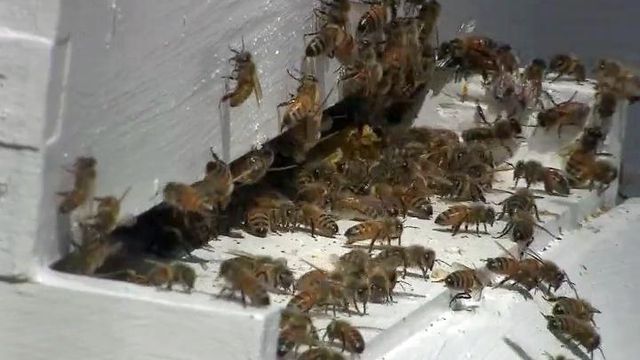Bee colonies collapsing as workers abandon hives
Bees are abandoning hives in increasing numbers, and a recent study suggests a pesticide may be to blame.
Posted — Updated“They're going out to get water, nectar and pollen,” he said. “That's their source of food.”
He had 12 hives last fall. Now, only two are active after the bees abandoned the other 10.
“The hive just abandons,” Jaynes said. “They'll abandon everything - everything but the queen and a handful of bees.”
In the study, 15 of 16 bee hives treated with the pesticide died after six months. Those exposed to the highest levels disappeared first.
“It's highly toxic to honeybees, yet they don't stop the sale,” Jaynes said.
Honeybees are integral to the food chain because they pollinate seeds. Jaynes says the bee losses could lead to food shortages as early as this fall.
He says it's time to look at alternatives to the pesticide that he says is wiping out the nation's honeybees.
"I can contend with mites, I can contend with the viral and bacterial problems," Jaynes said. "We know how to help the bees with that. We have no help with this."
• Credits
Copyright 2024 by Capitol Broadcasting Company. All rights reserved. This material may not be published, broadcast, rewritten or redistributed.





